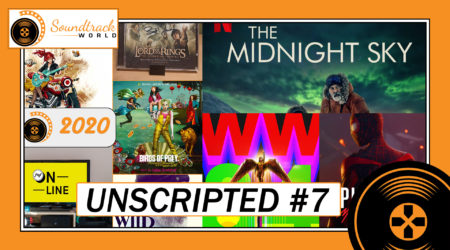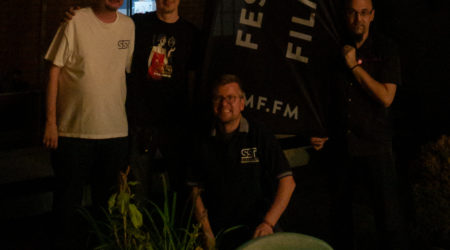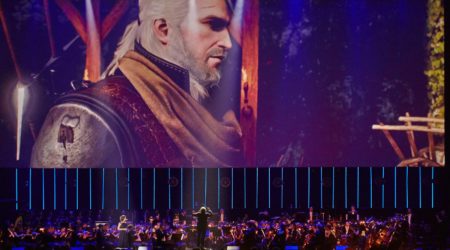While we are waiting for the Film Music Festival in Krakow, Poland, which will happen in May 2024, it is time to publish this timeless interview, which is a result of a fantastic collaboration with Gorka Oteiza of SoundTrackFest during a previous edition of the festival! I had the honor and pleasure to sit down and have a conversation with renowned composer John Powell, who had given a superb concert with his film music the day before. The interview took place on May 29, 2022, and during this interview, we were offered a small glimpse into his creative brain about the difference between influences and inspiration, How to Train Your Dragon, the definition of film music and his thoughts on live music.
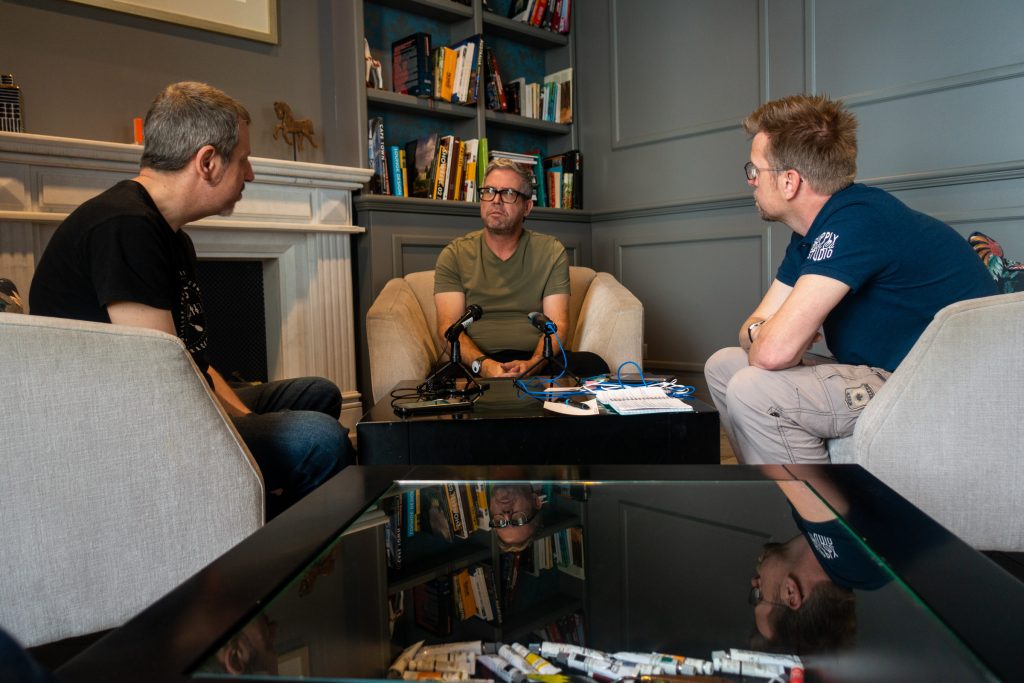
Gorka Oteiza: For my first question: I’m going to ask you the same question I asked Hans Zimmer a few years ago. Why did you decide to become a composer, and not a mathematician, a lawyer, a doctor, a plumber, or something else?
John Powell: I don’t think I decided. I don’t remember a moment to decide. I wanted to be a musician. I realized I liked being in music, and it was going to be too hard to be a player. I realized that was quite okay. I enjoyed composing and then I realized I could compose for picture and things. One of the reasons I wanted to study composition as well, was to be able to produce records. So, I thought I might end up as a record producer, but that wasn’t going to work out. I wasn’t a big enough of a fan of pop music to be able to do that. I sort of fell into just composing just to make money for adverts for a living, but I was also composing with Michael Petry and Gavin Greenaway for all this installation art. It’s an evolving process. There was no moment “I must be a composer.” None of that. I always talk about the moment when music changed my head, right when I was about seven, I think: The pieces of the Mendelssohn Violin Concerto. That is a very particular moment and there are lots of other moments but none that kind of go: “I will be a composer.”
Anton Smit: I have read a couple of interviews with you, and you often get asked about influences. Most of the time, your answer is some kind of musical piece: a song, a classical work or something, but influences can be so much more from time to time. Is there some influence outside of the musical realm that makes you write those beautiful melodies?
JP: No.
AS: Is it all pure music?
JP: *laughs* It is a very interesting question, and it is really strange. I could say I could have been inspired by things. You could be inspired by the film, a situation: a heartbreak or joy. Obviously, that’s really what I am writing: those experiential things. But the idea that, “Oh yes, I studied a lot of late 19th-century English watercolor painters and that is part of how I write”, I don’t think that is the case.
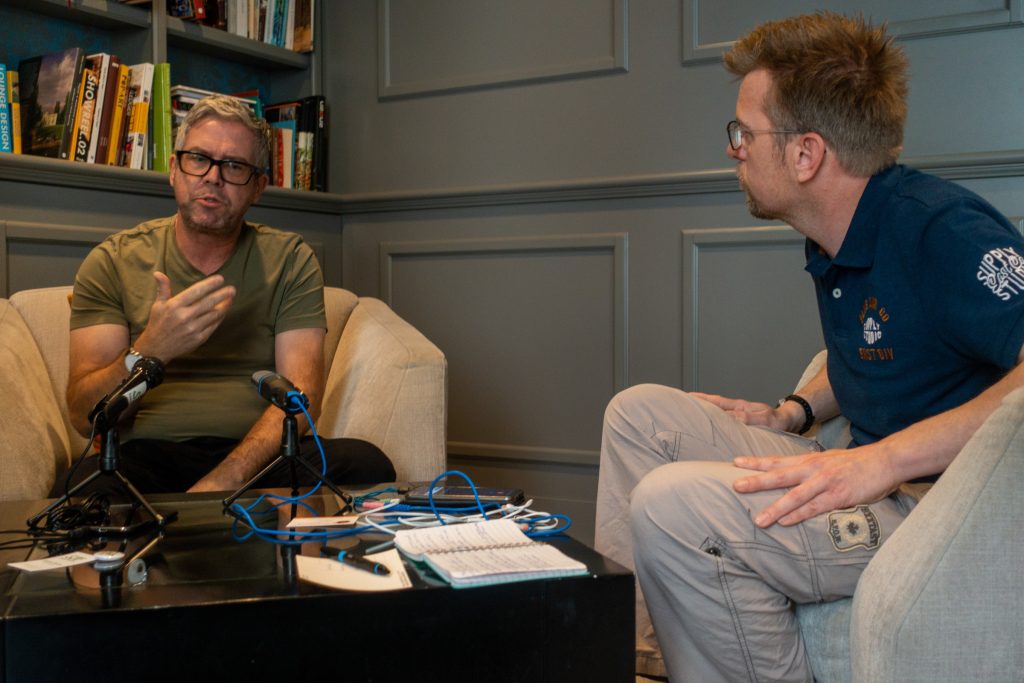
The only one I can think of is when I was at college. I remember hearing a very interesting British playwright – whose name I can’t remember now. He was heavy-looking, like a dangerous man. I remember him talking about how he funded his theater pieces that he wrote and performed with other people and sometimes alone. He talked about the fact that he goes to Hollywood for six months of the year, plays a heavy, makes money, comes back and then puts on his plays. In a way, that changed me, because I remember thinking that maybe there is a way of sort of making money from this so that I don’t have to borrow everything all the time, which in the contemporary music art world, you are constantly trying to raise money. You are trying to survive, to sort of figure out where to get commissions, who will pay for it, and whether it is music, all that kind of stuff.
So with all of that going on when I heard this idea of somebody kind of going: “Well, I’ve got a talent. I am going to go to Hollywood; I am going to use it, but I will take the money, and I will do what I want with it.” It was a big kind of factor in how I started to change my thinking on being a pure composer. It didn’t really change my technique, but it changed my attitude to how I could compose and probably made me think: “Okay well, maybe a commercial sense is good as well.” If I could find a place where I could be smart commercially, which I was realizing wasn’t pop music. That was probably why I ended up doing adverts and then TV and films. It probably pulled me one way. I never sit there and look at a painting and think that the abstract nature of this is something that I should try, and that’s how I should write.
I think that’s what you mean in the question? It is a really interesting one to do, and I am a bit embarrassed now that I have spent all this time being a composer, and I never thought maybe I should try to pick something out of somebody else’s art! I mean, I do! I mean, I am inspired, but I don’t think I am influenced by anything other than music.
GO: Let’s go to one compulsory question. I think we cannot avoid talking about How to Train Your Dragon. Everyone wants to know about that and probably most of the questions have already been asked. So, I am not sure if this is going to be an original one or not. You realize and know it has been a huge success all over the world, not only the movie, but the music also, which I think helped totally to get the spirit of what was going on there. Many orchestras in the world play that music. I mean, you have the bands marching in Edinburgh with the music of How to Train Your Dragon as if it was something from the past, composed 200 years ago. They treat it with the same solemnity as older pieces. Its success is so high… so how are you taking that success? Because it has two sides: It could be good and could help people discover you as a composer and your other works, but it can also be eclipsing your other works?
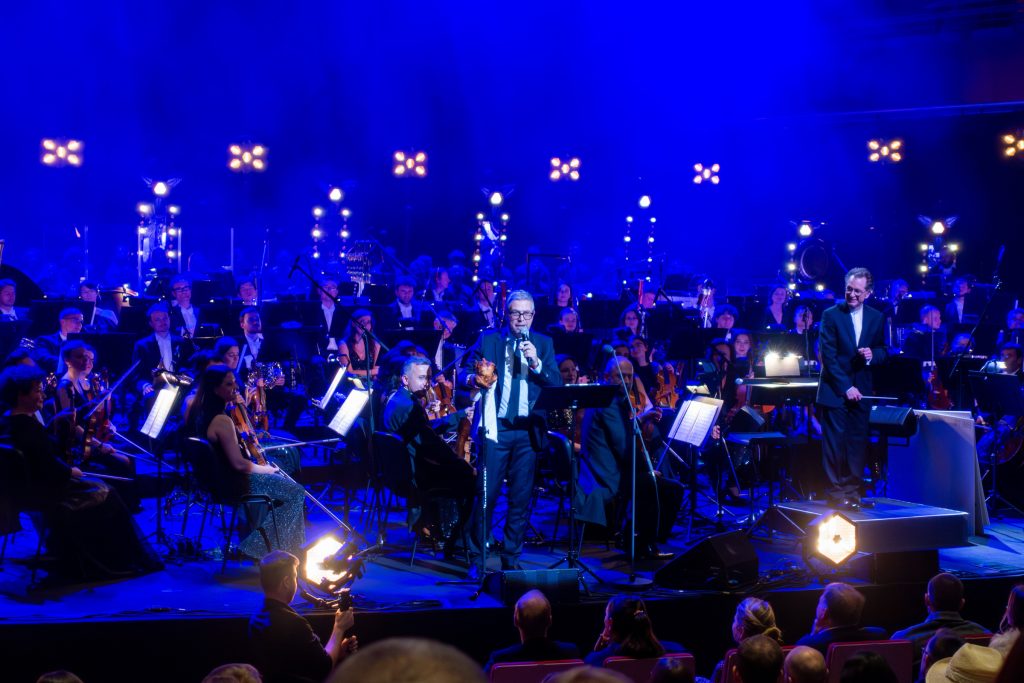
JP: Yeah, it is an interesting question. “Did I just hit the right thing on that film, and I won’t ever again?” The harder question you have to ask yourself at these moments is like “Did I peak? Can I write anything that good again?” If everyone thinks it’s good. Obviously, at the time, you are just writing, and you are trying to write the same quality. What made that one different? It is a great combination of things and whether or not that will happen to me again, I don’t know. The trick is to look for films that work really well and where I am cast really well. I think that is one of the things. I just was the right composer for that film, at that time, with those directors, under all the circumstances, everything kind of came together. It was a “They could not have found anybody better” sort of thing. It sounds arrogant, but I was kind of ready for it,, or I had just the things that would work for it. I didn’t even know that myself. You just work, and then it comes out, but then you look at everything else after it, and you go: “Okay, well, can I do this again or how can I do that again?” That is very hard to sort of look at. So the idea is you keep trying.
GO: Do you challenge yourself to try to get to that point, or higher, every time?
JP: Yes, I mean I certainly do. I was listening to some of the other things we did last night at the concert. I hadn’t heard them in quite a while. I hadn’t heard Ferdinand in a while and I was amazed at sort of how joyful it was, which is what the film needed, but at the time I was writing it, I was not joyful. It was a very miserable time, so it was really interesting listening to that and then thinking about what was going through my head while I was writing this. It could just be that you escape. You can escape life, your own feelings if you find them in the film, in the story. Or they do really reflect something that you are feeling at the time.
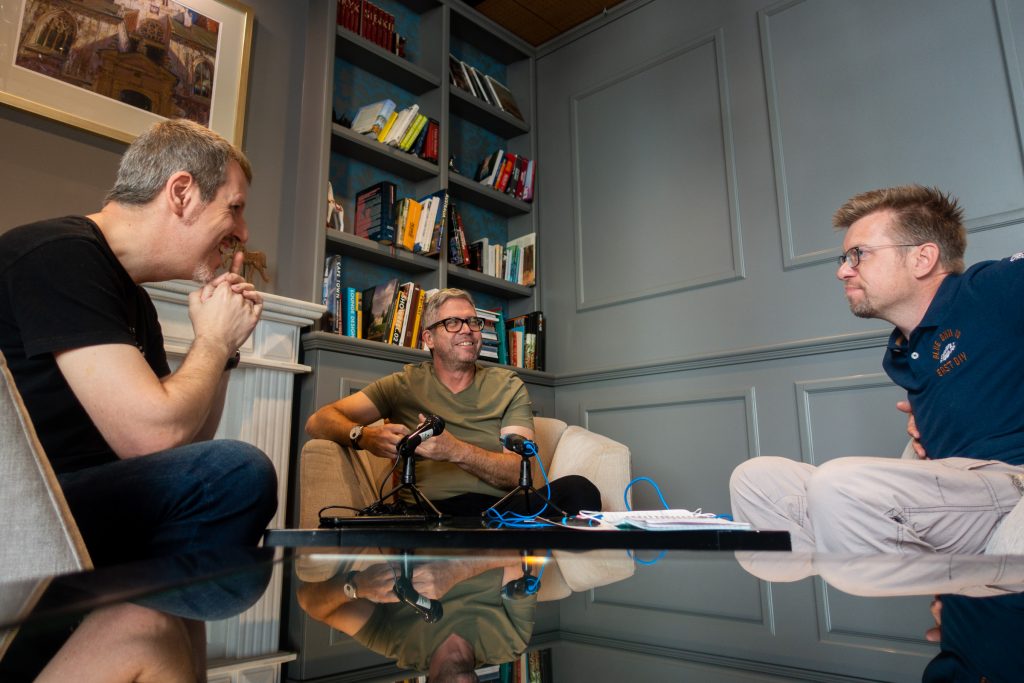
So, to go back to How to Train Your Dragon, the question was, what was I feeling at the time? What coincided that made it kind of a good one? Can you recreate that, or do you just have to be open? The theory is: Everything I write, I am trying to get better. So, if I have peaked and I am not better. I am still trying to get better!
AS: About How to Train Your Dragon. We now have a trilogy and we’ve seen you in a video where you sit behind the piano closing off one of the themes for the third film. Looking back at it, do you see them as three different scores or as just one complete story?
JP: I think that the idea of them being one big score, I would only say that if I had intended that, but the truth is when we did number one, we didn’t know that there would be a number two and a number three. It could not have done very well. It might not have worked, and then that would have been it. I never aimed any further than one movie to begin with. When we did How to Train Your Dragon 2 we knew that we were going to do a third one. So, I knew that I had two to go.
That is when I started to think about how I could take the material and use it the right way for another four hours of music. How can I develop it the right way, and what will I need that is new? Because I knew I was going to do a third movie as well. I wanted to write more themes so that I could use those as well. I think it was like one movie and then a double. That is probably how I intended it, but then that double was so referenced to the first one that I would love it to feel like it was one, and that would have been great.
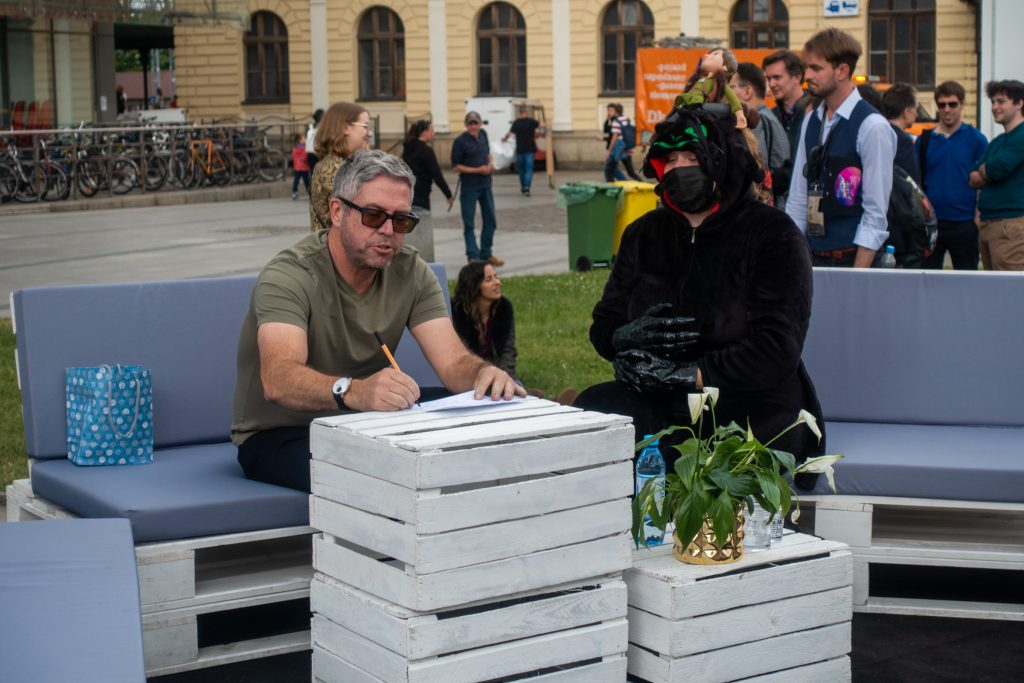
The great thing about sequels is that you have already established tone, you know where you are, and you know the characters. Then it is all about development, which is 90% of composition: 10% is a kind of invention, and then 90% is development. The main idea of composition was exactly what I got to do. It is funny: I never wanted to leave the language of the first one. It felt right, and everybody said that to me: “You don’t need to change the language at all,” but certain things you develop because the characters change, and the main thing that I was said was that once we got to number two, everyone is growing up. So, I was able to mature some of the music in the way I felt would reflect the characters maturing. That might be why the first one is so good, because it has an innocence to it, and then the second and third one, I was maturing everything. Maybe it was a bit too much, too sophisticated, I don’t know, but I like to think I did it for the right reasons, and I hope it works in the series.
GO: Let’s go with live music and going out of the studio. Most composers are in the studio: they compose for the movie, and that is it, but lately, composers are getting out of their studios. I mean, Hans Zimmer has always been doing his shows; like Ramin Djawadi did with Game of Thrones; James Newton Howard also did a tour in Europe. Then there are festivals like Hollywood in Vienna that invite composers. You did Hollywood in Hamburg, Prague, Malaga and here at the FMF. You are also getting out of your studio. Next year you are going to Switzerland, and you will do some concerts there. Do you think composers should really get out of their studios to take their music out of where it is, and be played live?
JP: It could be. It feels a little weird to me that people are that interested in film scores, because I always think, why not just have some really great classical music that is better?
GO: Some of those concerts have that too.
JP: Sure, but I wonder if they program the things in concerts for people who think they don’t like classical music, because they don’t like Beethoven, Wagner and all this other stuff. But the right types of classical music are kind of the bed of where a lot of this comes from. If you have Der Rosenkavalier, then you have got a lot of the early 20th-century film scores. I have always thought: why not play into that? One of the original ideas here at the festival was to come and to do – and I still want to do it – a kids’ concert like how Bernstein would do it, but do it for film music, in the sense of teaching kids about how music manipulates them and how it amplifies storytelling: the good and the bad of it. Then also show them the bits that they like from films, and then the bits that they don’t know they will like. It could be a useful educational tool.
GO: Do you think taking score out of a movie for a concert is a way to preserve that music? Because if it is attached to the movie, the only way to listen to it is in the movie, and sometimes it is not the right moment or place, because of sound effects and dialog. The music doesn’t have the listener’s attention. so taking out the themes and creating a concert piece really helps to preserve that music for future generations to listen to.
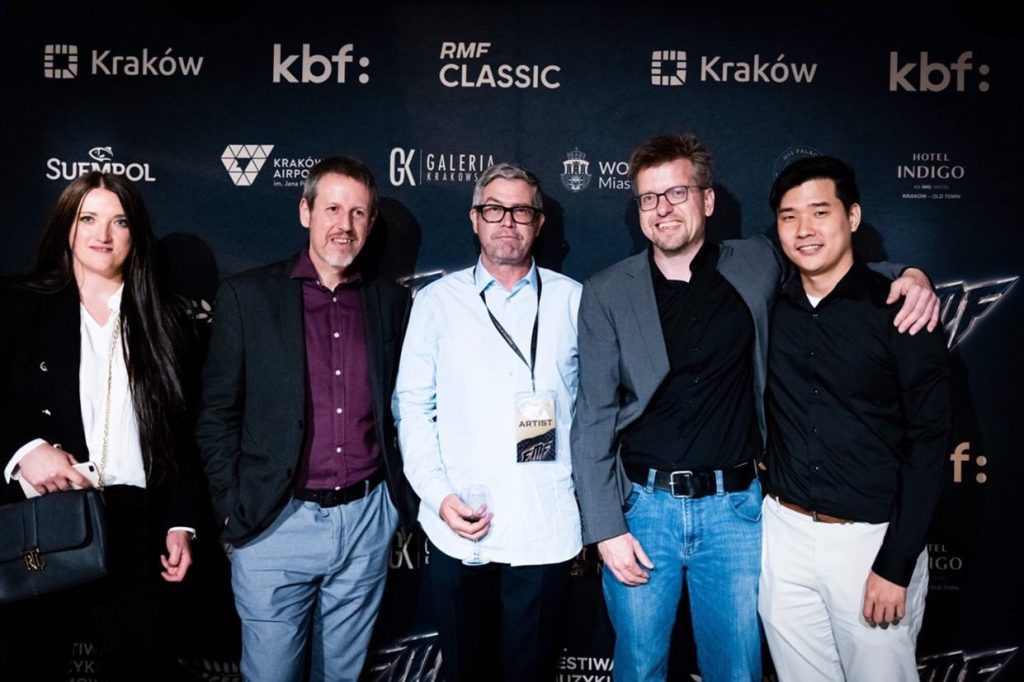
JP: The thing is, film music sometimes at its best is music that you don’t hear, and you don’t notice, and that is the truth of it. There are definitely composers, who, through their whole careers, never did anything that really should be preserved other than with the film, *laughs* and that is fine, it just works. But then there are other composers who, either deliberately or accidentally, wrote incredible pieces. The one I love is Taras Bulba by Franz Waxman. There are a whole bunch of other Franz Waxman that I have heard, but because everyone is talking, and it was melodramatic, I thought: Well, fine, it’s just more of that in the background, it works, it is fine. But then you hear something. It is like: this is not film music to me.
I have this weird switch which is the concept of ‘film music.’ because it works with the film, and then I have ‘music,’ that is the music, the stuff I go to. Anything by Morricone, Jerry Goldsmith or John Williams, I love as pieces of music. I guess I have found them in a film. I heard them in a film, but then they become this other thing for me, and maybe that is what you find about film music as well. I then sort of separate it: No, that is a piece of music. The opening titles from Alien by Jerry Goldsmith is as great a piece of music as has ever been written.
So, I do have a slight shift in my brain about these kinds of concerts. That is how I have been programming what I am doing. I actually don’t want people to even think of the film. I would love people to listen to those things last night. I did set things up, I described things, but ideally, I would love for people to just think and imagine into the story that they want to put on music.
A lot of people haven’t seen the movie Pan. It wasn’t successful, but the great thing for me is that I am happy to put the music out there because that sounds to me like something that you could make your own great story into. You could find stuff in there: there is adventure, obviously loss, love, a lot of joy and flying. All of those things are in there, and you don’t need to know the story, you don’t need to know the film.
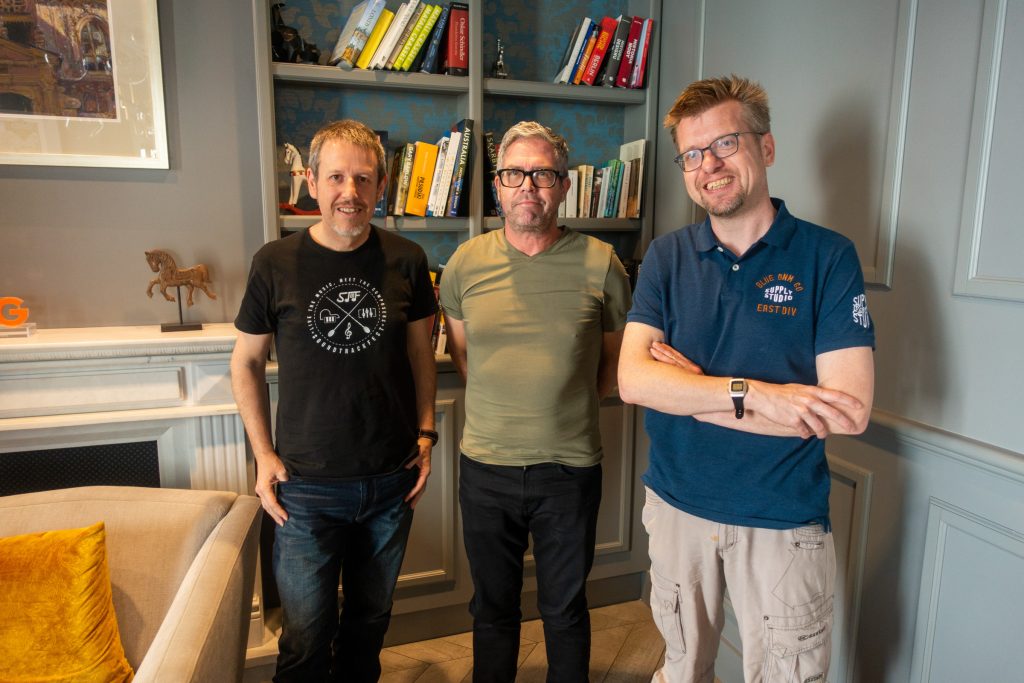
I would say 50% of the concert should somehow be really about film music and its relationship to storytelling, but then maybe the other 50% you can try and add in those things that even if they are from film, they could have a life on their own. That is one of the things I wanted to do with “Building the Crate” from Chicken Run. Somebody said to me that it is a great encore piece for any orchestra and choir, anywhere. It is just a bit of fun, and the choirs love it because they have kazoos. I actually want to have like a miniature study school of “Building the Crate,” because we have all of these scores and parts with very specialist companies that hold them very tightly. So, we can produce like 500 of them, and send them to every orchestra in the world, every conductor, every musical director to have it. If you want this, it is all just going to cost you a certain amount of bucks, just for encores, and literally saying this is for encores because all over the world, people are trying to figure out what to do in their concerts, that will be enjoyed and will not lose money!
And with the topic about the encore, we finished the interview, with no time for additional questions or “encores”, because our time was up! Thanks to the Krakow FMF, Stefan Bosman for the pictures and of course Gorka Oteiza and John Powell for this interview!

